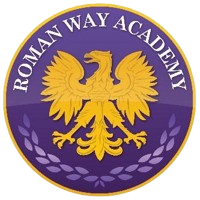History
How we teach, learn and assess History at Roman Way Academy
At Roman Way Academy, we want children to know and understand the history of Britain from the earliest times to the present day; how people’s lives have shaped this nation and others across the world and how Britain has influenced and been influenced by the wider world. We also want to compare this chronology to other countries' histories across the world.
Each year children will be exposed to new historical time periods and key events, building these into their timeline of periods and events previously learnt. Children will be taught to understand historical concepts such as continuity and change, cause and consequence, similarity, difference and significance, and use them to make connections, draw contrasts, analyse trends, frame historically-valid questions and create their own structured accounts, including written narratives and analyses.
They will also develop their understanding of the methods of historical enquiry, including how evidence is used rigorously to make historical claims, and discern how and why contrasting arguments and interpretations of the past have been constructed. Children will be exposed to a range of sources to explore and challenge what they already know considering alternative interpretations of events.
When appropriate, historical content and information being learnt is used in subjects like English where topics such as diary writing, research, recount and report writing are being taught. Topical celebrations, remembrances and anniversaries are also used to develop children’s understanding of past events and famous characters from the past. The substantive concept themes of transportation and settlements are threaded throughout the history curriculum across all year groups.
In Early Years, history makes a significant contribution to the ‘Understanding the World’ area of learning. It prepares children with an understanding of past and present, introducing chronological language to consider their own past, that of those around them and characters encountered within a story. In EYFS children are taught about historical events that are meaningful to children and their history. They also look at and compare homes and other objects and artefacts from the current day to similar objects from the past.
Key stage 1 and key stage 2 teachers use the National Curriculum 2014 as the basis for their curriculum planning in history. We ensure that there are opportunities for children of all abilities to develop their skills and knowledge in each unit, and we build planned progression into the scheme of work so that the children are increasingly challenged as they move up through the school.
Visitors, trips and artefacts are all used to support learning and maximise children's understanding of history.
History is assessed in a variety of ways. When planning, teachers use the progressive skills ladder as well as the long-term overview to keep coverage consistent and interlocking to previous learning. Teachers will start lessons with a retrieval question to assess memory of prior learning as well as an opportunity to link the previous learning in long-term memory to the new knowledge acquired in the upcoming lesson. Lessons will also have a learning question as the learning objective, allowing assessment at the end of the lesson to be clear and concise. Class teachers reflect upon the children’s learning to assess their understanding and skills. Other types of formative assessment of learning are also used within History as they are in all subjects. Children will also take part in a final summative assessment of their topic through a double page spread answering their over-arching enquiry question which allows children to demonstrate their learning.
Useful links:
